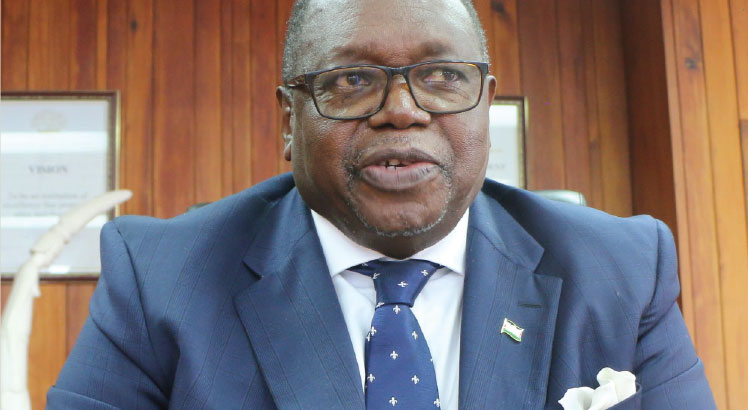Employees owed k28.7 billion in pension arrears
Despite efforts to enforce time l y remittance on pension contributions, pension funds non-remittance continues to rise, a situation Malawi Congress of Trade Unions (MCTU) has described as worrisome.
According to latest Reserve Bank of Malawi (RBM) figures, outstanding pension contributions from employers have continued to rise over the past five years, growing from K9.9 billion in 2017 to 27.5 in 2021.

The Pension Act 2010, however, makes pension f u n d s r e m i t t a n c e s mandatory and under it, employers are mandated to enroll their employees on a pension scheme.
Under the law, employees contribute a minimum rate of five percent while employers are mandated to remit 10 percent of the employees’ monthly gross salary which aggregates to 15 percent monthly.
But according to the 2019 Financial Institutions Supervision Report, pension arrears increased by 8.7 percent to K27.5 billion in 2021 from K26.2 billion recorded in 2020 while contributions rose to K141.7 billion in 2021 from K122.1 billion collected in 2020.
MCTU president Charles Kumchenga said in an interview on Tuesday, the development is worrying to the union calling on authorities to act on the development promptly.
“Employees are losing out their savings when they retire or lose their jobs because pension funds they contributed at the time of employment are not available.
“By not remitting the pensions, the employers are committing a criminal offense because they deduct the funds from employees, which is reflected on monthly payslips but fail to remit the same to pension fund administrators,” he said.
He said the central bank has the powers to task employers to comply with the Pension Funds Act but expressed concern that it was failing, adding that naming and shaming is meaningless when results are not coming as intended.
Employers Consultative Association of Malawi (Ecam) executive director George Khaki has since admitted the challenge saying it is a reflection of the economic environment where employers are not generating enough revenues to meet their obligations including pensions.
Khaki however added that there is also a minority of employers who just do not want to follow the law.
“In any case, we encourage employers that have challenges to discuss with their workers and the regulator and to agree on a plan to make good of their peculiar situations,” he said.
Last year, RBM stepped up efforts to enforce timely remittance of pension contributions, which included taking legal action against employers with pension contribution arrears.
The move by the central bank was meant to deal with non-compliant private sector institutions and government institutions that have not been remitting pension funds.
Meanwhile, RBM governor Wilson Banda, who is also the registrar of financial institutions, has since indicated that the central bank commenced prosecution processes for the selected employers that were served with administrative penalties as a pilot.
According to Banda, the outcome of this process will inform the registrar on how to handle the rest of the defaulting employers.
He said: “The registrar will persist in engaging employers who are not remitting pension contributions as it is this area that the majority of complaints emanate from.
“Further, pension awareness programmes will be intensified as a tool for alerting pension members of their rights and the operation of pension funds to reduce complaints that arise due to misunderstanding of the provisions of the Pension Act, 2010.”
Banda added that the registrar is planning to undertake workshops for various employer associations to sensitize the employers to seriously take their obligations under the Pension Act, 2010.





